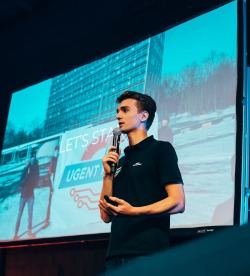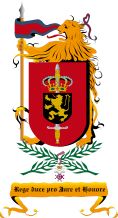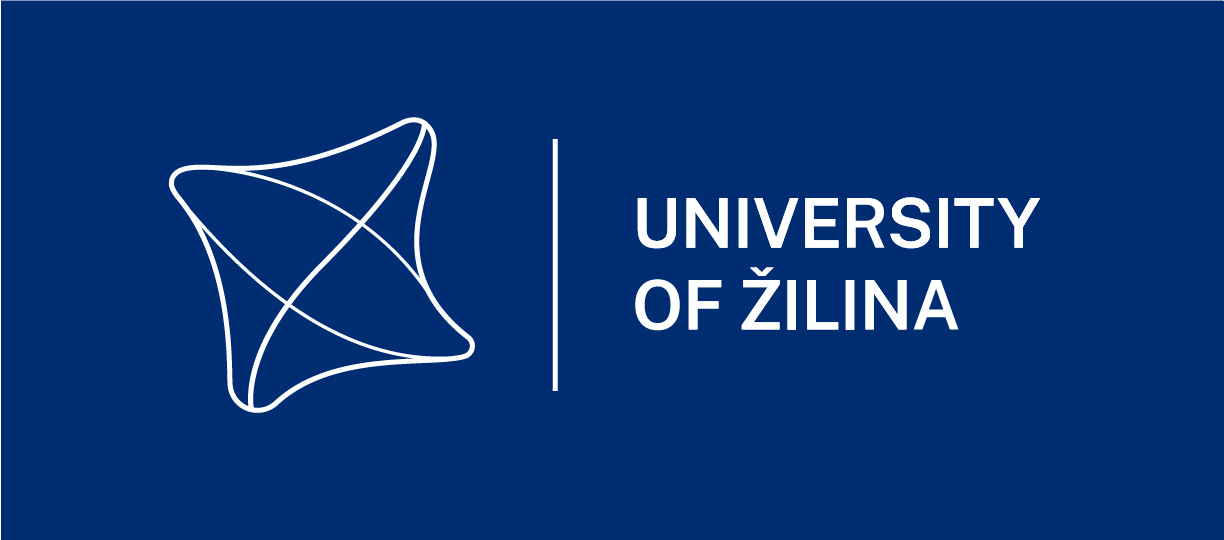Invited Talks
PolySense: Sustainable Intelligence
Abstract
"Nothing is permanent, except change" Aristotles. The last months, our lives are changing at a tremendous pace. This change is powered by different seismic shocks like the biological shock of 2020, ecological shocks, geopolitical shocks and socials shocks. This world full of uncertainties is called "the never normal" by Peter Hinssen. It is time to collaborate with new technologies, such as artificial intelligence, to speed up our understanding and make the right decisions in this never normal world. But how do we find the right balance? Current AI use cases surely have an indirect positive impact when it gets to sustainability, but today they do this at an ever increasing direct negative impact on the planet from a CO2 emission perspective. Realising net positive intelligence, by creating AI solutions that exhibit a sustainable goal with an optimised energy efficiency setup, will be key in the future. Learn more about these concepts during my talk at SCIFI-IT 2023.
Short Biography
to be added
QFVSOOM a Quantum Object-Oriented Model Based on Temporal Fuzzy Vector Spaces that unifies the Microscopic and Macroscopic Levels of Quantic Mechanics
Abstract
The QFVSOOM is an extension of the Fuzzy Vector Space Object Oriented (FVSOOM) model which revisits the theory of quantum mechanics of Schrödinger and offers a solution to implement the arrow of time and the irreversibility of complex systems as proposed by Ilya Prigogine in his book «La fin des certitudes». Our approach is compatible with thermodynamics and explains that at each level of the hierarchy of composition objects occur interactions and interferences over time that are responsible for the emergence of new properties. The bifurcations linked to these interferences produce at every moment the irreversibility of the system contrary to the classical mechanics of Newton and the quantum mechanics of Schrödinger which are reversible. Like Ilya Prigogine, we believe in a probabilistic evolution of the bifurcations of the system’s components over time. QFVSOOM provides temporal modeling of the evolution of component objects and junction objects, with system states using Dynamic Finite State Automata (DFSA) which generalize the proposed FVSOOM model and Markov chains and that provides a programmable solution to the systemic specifications of quantum mechanics. We will show that our model is applicable not only to the microscopic level of physics and chemistry, but in turn to the emerging phenomena of biology, up to macroscopic levels like diseases observed in living species.
QFVSOOM model relies on a topology of a finite-dimensional vector space on real and complex fields. The unification of the microscopic level to the macroscopic level proposed by QFVSOOM constitutes a significant contribution of this model to quantum mechanics.
Short Biography
Joël Colloc earned his M.D. at the medical faculty of Lyon and a specialty degree of forensic medicine with a degree of clinical toxicology. He received a MSc. degree of IT from the Business School of Lyon (IAE) and a MSc. degree of computer sciences from the engineering school INSA of Lyon. He served as forensic physician at the Edouard Herriot Hospital in the neurological emergency department to cure drug addicted people, medical ethics and developed drug and addiction database. He went on to earn his Ph.D. in computer sciences at the INSA of Lyon.
As Hospital assistant at the laboratory of medical computer science and he taught IT at the medical faculty. He was elected as associate professor in computer sciences at IAE of Lyon and he earned his accreditation to supervise researches in sciences at the Lyon 1 University. He is a Le Havre Normandy University professor in computer sciences since 2003.
His main research topics concern e-health and particularly: fuzzy vectorial spaces (FVS), multi-agent clinical decision support systems (MADSS) and knowledge bases, Case Based Reasoning, ontologies, nervous system modeling and cognitive sciences and AI applications in medicine and human sciences.
His human sciences researches try to conciliate the ethics of using Big Data in epidemiological studies, autonomous systems and robots and keeping ethics use of AI in order to improve clinical decision in medicine while preserving the patient-caregiver relationship, the privacy and the freewill choice of the patients.
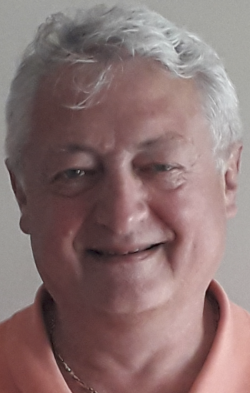
Université of Le Havre
Le Havre,France
A World of Agents
Abstract
An Agent is a well-known concept in Computer science. We define an agent as an entity able to interact with its world (environment).
The entities might be animals, organism, physical systems, software agents etc. An agent is able to sense its environment, reason
about its perception and takes appropriate actions. An agent as a piece of software, is able to set his own goals, acts autonomously
without direct supervisions. Agents are able to evaluate if the goals are realised and are able to change their goals or actions.
Agents usually live in a community (MAS).
Classical agents have a rule-based system to reason about its perceptions and selection of actions. Modern agents have a self-learning
mechanism and this implies that the software designer has no control of the development of its agent. Modern agents live in their own
world, parallel to the human world. Agents are at start designed after human model but are able to develop beyond that.
Agents play an important role in computer games. Many games are composed of agents and human players. In many games agents take over
the control of the game and becoming the winner in the battle between humans and agents. A first example of such a game is QUAKE.
Originally the artificial bot has its capacities but also its limitations. But designing a “bot” with self-learning capabilities
grows beyond the control of its designer.
Many agents can be considered as implementation of angels. Science fiction stories are told in many religious. Angels are supposed to
live in heaven and have a close connection with human beings. Guardian angels’ stories told for centuries are special agents realised
in current technologies as smart phones and smart cameras.
Short Biography
Leon Rothkrantz studied Mathematics at the University of Utrecht. After his PhD defense at the University of Amsterdam, he completed a second study in Psychology at the University of Leiden. In 1980 he was appointed at the Technical University of Delft. His research topics was Artificial Intelligence with a focus on modelling human brain and multimodal communication. In 1999 he was appointed as Associate Professor at TUDelft and headed the group of Knowledge Based Systems. In 2008 he was appointed as Professor in Smart sensor systems at The Netherlands Defense Academy. In 2015 he was awarded with a degree of Doctor honoris cause from the Czech Technical University in Prague and since 2013 he is visiting Professor at that University at the Faculty of Transportation Sciences.
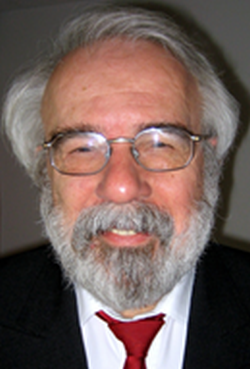
Czech Technical University
Prague, Czech Republic
Compostable Cities: from Waste to Resource
Abstract
Considering the challenges of resource scarcity and the environmental impact of the built environment, a new vision for circular
architecture is required. Is it possible to achieve circularity through compostable cities in the future? As substantial infrastructure
investments has been made in our cities, architecture has become one of the major contributors to carbon emissions and waste. This
research seeks a new generation of materials that are both produced and recycled by fungi, the biosphere's foundation. Activating
microorganisms within cities could generate sustainable methods for fabricating and recycling urban fabric, hence minimizing carbon
emissions and material extraction.
This study will employ biodigestion and biomineralization as two primary biological processes that respectively facilitate recycling
and production of construction material in a way that leads to both circular and regenerative architecture. The preliminary stages of
this research focus on fungi as a potential biological agent to facilitate a recycling process that converts construction and demolition
waste into its basic constituents. This recycling step is based on a biodigestion process in which fungi secrete organic acids that break
down the mineral structure of the hydrated cement that binds concrete. The outcome of this process is the production of biomass,
construction aggregates and a calcium rich carbon source. Meanwhile during the biomineralization process, fungi can recycle these products
into a new material. The fungi will bind the aggregates together through two process: (i) the formation of a hyphae network and (ii) through
the precipitation of calcium carbonate minerals. At the end of the materials life cycle, it can be recycled again through the same
biodigestion process. The purpose of this study is investigate the effect of these biological processes on the construction and demolition
practices of building, which leads to envisaging the compostable cities of the future.
Short Biography
Tria began her academic career in Architecture as she finished her study with cum laude distinction from Universitas Indonesia in 2013. Her specialised interest in multidisciplinary approach influenced her in pursuing Master of Design Innovation and Technology from RMIT University in Melbourne Australia. She graduated with a Master's in 2020 as Valedictorian and received the Vice-Chancellor's List Award. Currently, Tria is selected as an Interdisciplinary PhD Candidate in the Faculty of Engineering Technology and Faculty of Architecture KU Leuven. Her project, titled Compostable Cities, is a collaborative research between BioTeC+ and Regenerative Architecture Art and Design (RAAD), enticing a circular, regenerative and urban metabolism by implementing certain bioprocesses and biotechnologies.
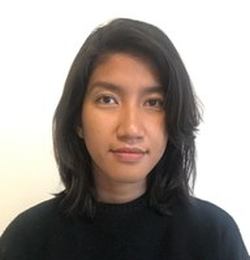
Simen Akkermans, Rachel Armstrong
and Jan F.M. Van Impe
University of Leuven
Campus Ghent
Ghent, Belgium
Modelling and Optimisation of Small-scale Biorefineries: Tools for the Future
Abstract
Biorefinery systems that are embedded in their local setting provide an attractive framework for the valorisation of locally available
food- and other bio-waste streams. They can aid in the provision of local bio-waste processing facilities as well as the targeted revalorisation
of local bio-waste feedstocks by converting them in locally desired biorefinery products. Since food- and other bio-waste feedstocks are often
diffuse feedstocks, small-scale biorefineries that are tailored for their local setting are the most suitable biorefining system for their processing.
Whereas small scale biorefineries cannot rely on the economy-of-scale to be an economic sustainable endeavour, they need to be meticulously optimised
according to multiple sustainability objectives.
These objectives can be of economic, societal, or environmental nature. A commonly used optimisation criterion in these problems is the energy requirements
of the entire biorefinery system. For many commonly used biorefinery processes mass balance models are available, however, energy balances are difficult
to obtain. Additionally, the energy requirements of any operational unit are, amongst others, depending on the used equipment, its dimension, the presence
of residual heat recuperation, and the thermodynamic properties of the considered reagents and products.
Chemical process simulators, like Aspen Plus, provide an extensive toolkit to easily model a multitude of chemical processes. In this contribution, an Aspen
Plus model of a small-scale local biorefinery, capable of processing food- and wood waste, is presented. The developed model is subsequently employed in
the multi-objective optimisation of the considered biorefinery system employing our in-house developed genetic optimisation algorithm tDOM.
Short Biography
Viviane De Buck studied at the KU Leuven Campus of Technology in Ghent and obtained her Master's degree in Biochemical Engineering Technology in July 2018. She did her Master's thesis on multi-objective optimisation in collaboration with the BioTeC+ research group and will continue her work as a PhD student. The main focus of her research will be on hybrid optimisation algorithms, high-dimensional visualisation techniques, and improving integrated biorefineries for the (re-)valorisation of biowaste streams.
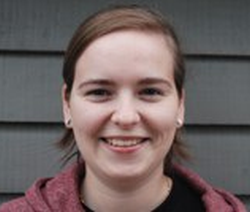
Mihaela Sbarciog, Satyajeet Sheetal Bhonsale,
Monika Polanska and Jan F.M. Van Impe
University of Leuven
Campus Ghent
Ghent, Belgium
